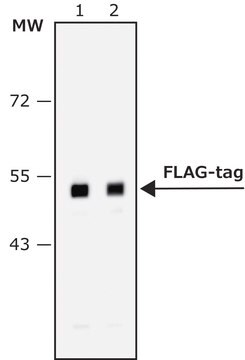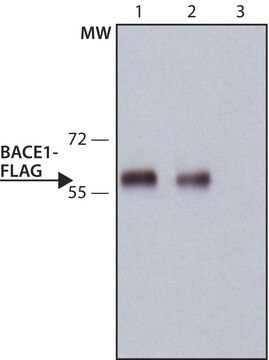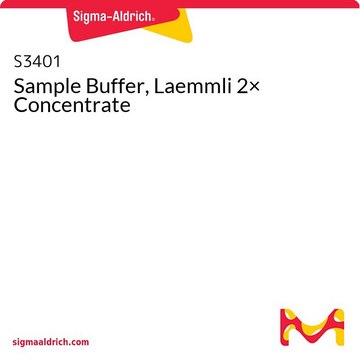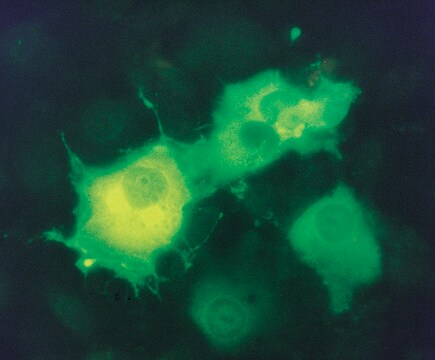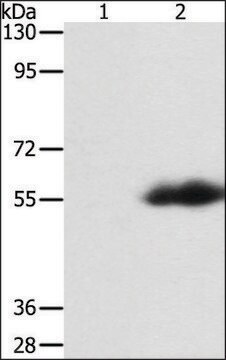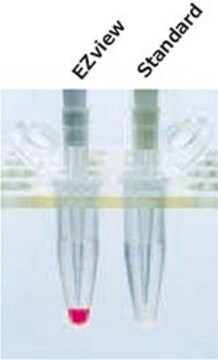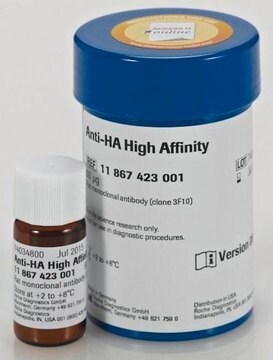SAB4200119
Monoclonal Anti-FLAG-Peroxidase antibody produced in rat
2-4 mg/mL, clone 6F7, purified immunoglobulin
Synonyme(s) :
Anti-ddddk, Anti-dykddddk
About This Item
Produits recommandés
Source biologique
rat
Niveau de qualité
Conjugué
peroxidase conjugate
Forme d'anticorps
purified immunoglobulin
Type de produit anticorps
primary antibodies
Clone
6F7, monoclonal
Forme
buffered aqueous solution
Espèces réactives
all
Concentration
2-4 mg/mL
Technique(s)
western blot: 1:1,000-1:2,000 using extracts of transfected cells expressing C-terminal FLAG-tagged fusion protein
Isotype
IgG1
Séquence immunogène
DYKDDDDK
Conditions d'expédition
dry ice
Température de stockage
−20°C
Description générale
Immunogène
Application
Forme physique
Informations légales
Vous ne trouvez pas le bon produit ?
Essayez notre Outil de sélection de produits.
Code de la classe de stockage
10 - Combustible liquids
Point d'éclair (°F)
Not applicable
Point d'éclair (°C)
Not applicable
Certificats d'analyse (COA)
Recherchez un Certificats d'analyse (COA) en saisissant le numéro de lot du produit. Les numéros de lot figurent sur l'étiquette du produit après les mots "Lot" ou "Batch".
Déjà en possession de ce produit ?
Retrouvez la documentation relative aux produits que vous avez récemment achetés dans la Bibliothèque de documents.
Les clients ont également consulté
Notre équipe de scientifiques dispose d'une expérience dans tous les secteurs de la recherche, notamment en sciences de la vie, science des matériaux, synthèse chimique, chromatographie, analyse et dans de nombreux autres domaines..
Contacter notre Service technique
